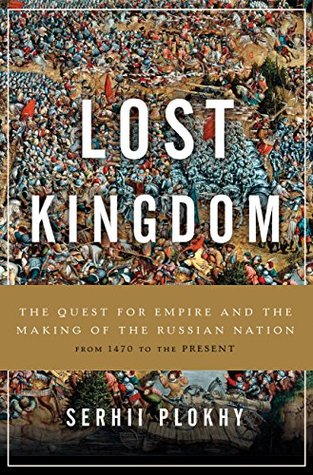“In order to warm the hearts of the Uniate clergy with the Russian spirit, every possible opportunity was taken to revive the memory of their origins, the Polish repressions that they had suffered, and the paternal concern of the Russian government for their welfare,” wrote Semashko in 1837. He thought his efforts were bringing some results: “The previously alien notion of taking pride in the Russian name and heritage,” he wrote, “is now treasured by a very considerable portion of the clergy subordinate to me.”
Welcome back. Just a moment while we sign you in to your Goodreads account.


